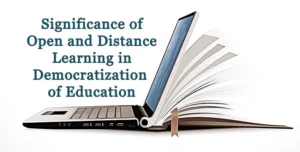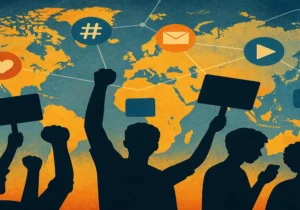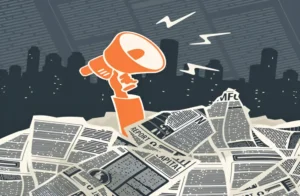Pros and Cons of Social Media
Social media offers numerous benefits, such as enhancing global connectivity, fostering community building, and providing platforms for self-expression and business promotion. It facilitates instant communication, keeps people informed, and can even support social movements. However, it also has significant drawbacks. Social media can contribute to mental health issues, spread misinformation, and enable cyberbullying. Additionally, its addictive nature can lead to decreased productivity and real-life social interactions. Balancing these pros and cons is essential for a healthy relationship with social media. In this article we will discuss the impact of social media on our society. Let’s get started!

The Positive Impact of Social Media on Our Society
Social media plays a pivotal role in modern society by fostering global connectivity and bridging communication gaps across demographics and professions. It enables users to stay in touch, share content, and express themselves, thereby transforming how we initiate, build, and maintain relationships. Let’s find out the positive impacts of social media on our society.
Enhanced Connectivity:
Social media has revolutionized the way people connect, allowing instant communication across the globe. Social platforms enable users to maintain relationships, network professionally, and share experiences. This global connectivity fosters a sense of community and belonging, bridging cultural and geographical divides.
Educational Opportunities:
Social media provides access to a vast array of educational resources. Platforms like YouTube and LinkedIn Learning offer tutorials, courses, and webinars on various subjects. This democratization of knowledge empowers individuals to learn new skills, stay informed about current events, and engage in lifelong learning.
Economic Benefits:
Social media has become a powerful tool for businesses, especially small enterprises. It offers cost-effective marketing solutions, enabling businesses to reach a broader audience. Entrepreneurs can promote their products and services, engage with customers, and build brand loyalty. This has led to increased economic opportunities and job creation.
Social and Political Awareness:
Social media platforms play a crucial role in raising awareness about social and political issues. They provide a space for individuals to voice their opinions, share information, and mobilize for causes. Movements like #MeToo and Black Lives Matter have gained momentum through social media, highlighting its potential to drive social change and promote justice.
Read Here: Role of Social Media in Social Movements
Mental Health Support:
While social media can have negative effects on mental health, it also offers significant support. Online communities and support groups provide a platform for individuals to share their experiences and seek help. Mental health professionals use social media to offer advice, resources, and virtual counseling, making mental health support more accessible.
The Negative Impact of Social Media on Our Society
While social media connects people globally, it also has several negative impacts on society. Let’s understand the negative effects of using social media on our society.
Mental Health Issues:
Excessive use of social media has been linked to various mental health problems, including anxiety, depression, and loneliness. The constant comparison to others’ seemingly perfect lives can lead to feelings of inadequacy and low self-esteem. Studies indicate that heavy social media usage is associated with increased rates of mental health issues, particularly among young people.
Cyberbullying:
Social media platforms have become breeding grounds for cyberbullying. Individuals, especially teenagers, are often subjected to online harassment, which can have severe emotional and psychological effects. The anonymity provided by social media allows bullies to target their victims without facing immediate consequences.
Privacy Concerns:
The widespread sharing of personal information on social media raises significant privacy issues. Users often unknowingly expose themselves to data breaches and identity theft. Additionally, the collection and misuse of personal data by social media companies have sparked concerns about user privacy and data security.
Spread of Misinformation:
Social media platforms are notorious for the rapid spread of misinformation and fake news. False information can quickly go viral, leading to widespread misconceptions and panic. This has serious implications for public health, politics, and social stability.
Reduced Productivity:
The addictive nature of social media can lead to significant time wastage and reduced productivity. Many individuals find themselves spending hours scrolling through reels and feeds, which can detract from work, studies, and real-life interactions. This constant distraction can hinder personal and professional growth.
Remember! Social Media Platforms can Be Biased
Social media platforms are often criticized for their inherent biases, which can shape the information users see and influence public opinion. One significant source of bias is the algorithms that curate content on platforms like Facebook, Twitter, and Instagram. These algorithms are designed to maximize user engagement by showing content that aligns with users’ interests and preferences. However, this can create echo chambers where users are primarily exposed to information that reinforces their existing beliefs, leading to polarization and a skewed perception of reality.
Another source of bias on social media is the influence of societal and cultural factors. Users tend to connect with like-minded individuals, which can further amplify biases. For example, people are more likely to share and engage with content that resonates with their social and cultural values. This selective exposure can result in the spread of hyperpartisan content and misinformation, as users may prioritize emotionally charged or sensational headlines over factual accuracy. This phenomenon was evident during the 2016 U.S. presidential election, where false news stories spread rapidly on social media, influencing public opinion and voter behavior.
Additionally, cognitive biases play a role in how users interact with social media content. The brain’s tendency to favor information that confirms pre-existing beliefs, known as confirmation bias, can lead users to accept and share misleading or false information without critical evaluation. Social media platforms have attempted to address these issues by implementing fact-checking mechanisms and promoting media literacy. However, the challenge remains significant, as the rapid dissemination of information on social media often outpaces efforts to verify and correct inaccuracies.
Be Careful! Social Media can be Used to Promote Fake News and Propagandas and Perpetuate Youth Violence
Social media platforms can be exploited for illegal activities and violence in various ways. One common method is through the spread of disinformation and propaganda, which can incite violence and unrest. For example, extremist groups often use social media to recruit members, spread their ideologies, and coordinate attacks. These platforms provide a relatively anonymous and far-reaching means to disseminate harmful content, making it easier for such groups to operate and influence vulnerable individuals.
Another way social media is used for illegal activities is through cybercrimes such as hacking, identity theft, and fraud. Criminals can use social media to gather personal information about their targets, which can then be used to commit identity theft or financial fraud. Additionally, social media platforms can be used to distribute illegal goods and services, such as drugs, weapons, and counterfeit products. The anonymity provided by these platforms makes it difficult for law enforcement to track and apprehend perpetrators.
Social media can also facilitate direct acts of violence, such as cyberbullying, harassment, and stalking. Perpetrators can use these platforms to target individuals, often leading to severe emotional and psychological harm. In extreme cases, online harassment can escalate to physical violence. For instance, there have been instances where social media disputes have led to real-world confrontations and even murders. The ability to quickly and widely share information on social media can amplify these conflicts, making it a potent tool for those intending to cause harm.
Holding social media platforms accountable for misuse and violence is vital to ensure a safer and more responsible digital environment. These platforms have a significant influence on public discourse and behavior, and their algorithms can sometimes amplify harmful content. By holding them accountable, we can push for better moderation practices, transparency, and policies that prevent the spread of violent and extremist content. This accountability can help mitigate the risks of online radicalization and the incitement of real-world violence, protecting vulnerable individuals and communities.
Be Alert! Social Media Platforms can Suppress Social Movements, Protests and Activism
Digital repression refers to the use of digital tools and platforms to suppress social movements, protests, and activism. Governments and other powerful entities often employ various tactics to monitor, control, and undermine activists’ efforts online. For instance, surveillance technologies can track activists’ communications and movements, making it easier for authorities to preemptively disrupt protests or target key organizers. This constant monitoring raises the costs of activism, as individuals must navigate the risks of being identified and retaliated against for their involvement in social movements.
Another method of digital repression involves the manipulation of information on social media platforms. Governments and other actors may spread disinformation or propaganda to discredit movements and sow discord among activists. By flooding social media with false narratives or divisive content, they can create confusion and weaken the cohesion of social movements. Additionally, platforms themselves can be complicit in digital repression by censoring content or deactivating accounts that are deemed threatening to the status quo. This can stifle dissent and limit the reach of activist messages.
Moreover, digital repression can take the form of cyberattacks against activists and their organizations. Distributed Denial of Service (DDoS) attacks, hacking, and other forms of cyber harassment can disrupt the online presence of social movements, making it difficult for them to organize and communicate effectively. These attacks can also intimidate activists, discouraging them from participating in digital activism. The rise of digital repression highlights the need for robust digital security measures and international norms to protect the rights of activists in the digital age.

Conclusion: Use Social Media Safely and Responsibly
Using social media carefully and responsibly is crucial for maintaining a healthy and positive online environment. One primary reason is the potential impact on mental health. Excessive use of social media can lead to feelings of anxiety, depression, and loneliness, especially when users compare themselves to others or encounter negative content. By being mindful of our social media habits, we can reduce these negative effects and promote a more balanced and healthy relationship with technology.
Another important reason to use social media responsibly is to prevent the spread of misinformation and harmful content. Social media platforms can quickly amplify false information, leading to confusion and potentially dangerous consequences. By verifying the accuracy of the information we share and engaging critically with the content we consume, we can help combat the spread of misinformation. This responsible behavior contributes to a more informed and educated online community.
Lastly, responsible social media use helps protect our privacy and security. Sharing too much personal information online can make us vulnerable to identity theft, cyberbullying, and other forms of online harassment. By being cautious about what we post and who we interact with, we can safeguard our personal information and create a safer online experience for ourselves and others. Overall, careful and responsible use of social media ensures that it remains a positive and constructive tool for communication and connection.
Author: Mahtab Alam Quddusi





